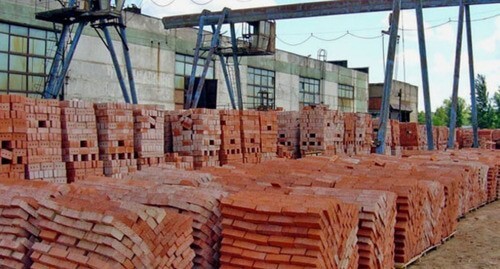Journalists point to severity decrease of labour slavery problem in Dagestan
In recent years, in Dagestan, the problem of labour slavery has become less acute, local journalists have pointed out. The practice of labour slavery is gaining momentum in the Rostov Region, Stavropol Territory and Adygea, an activist of the "Alternativa" anti-slavery public movement has stated.
The "Caucasian Knot" has reported that on January 25 it became known that volunteers from the above movement had helped Dmitry, a Minsk resident, to escape from labour slavery at a brick factory located near Kaspiysk, a Dagestan city.
According to the above activist, Dmitry managed to successfully escape from the factory, where he had worked for three weeks, largely because he still had his phone. "He himself didn't know where he could run from there, but he called his relatives; they turned to his friend, and his friend turned to us," the female activist has explained.
She has added that in recent years the situation with labour slavery in Dagestan has become "calmer." "There are less physical violence and threats. Besides, now we can state that there are people who voluntarily come to Dagestan to wait out the winter, working for food or for a small salary," she has concluded.
In Russia, cases of labour slavery are fixed elsewhere, including the Moscow Region, the "Alternativa" activist has noted. "In the Southern Federal and North-Caucasus Federal Districts (SFD and NCFD), perhaps, most applications come from the Rostov Region and the Stavropol Territory ... and the point is mainly about farmers using such labour," she has stated.
The problem of labour slavery has lost its urgency in Dagestan, Magomed Magomedov, a deputy editor-in-chief of the "Chernovik" outlet, has noted, adding that the bulk of those who work for meals, who are usually treated as "labour slaves," are people who have occurred in a difficult life situation; therefore, it would be wrong to call them slaves.
Earlier, the "Alternativa" noted that those, who are not used to defend their rights and are afraid of some revenge, get into labour slavery; this allows their recruiters and exploiters to remain unpunished. In Northern Caucasus, slavery was a sort of a norm until the start of the 20th century, Olga Shafranova, an ethnographer, has noted.
This article was originally published on the Russian page of 24/7 Internet agency ‘Caucasian Knot’ on January 27, 2024 at 07:56 pm MSK. To access the full text of the article, click here.
Source: СK correspondent

